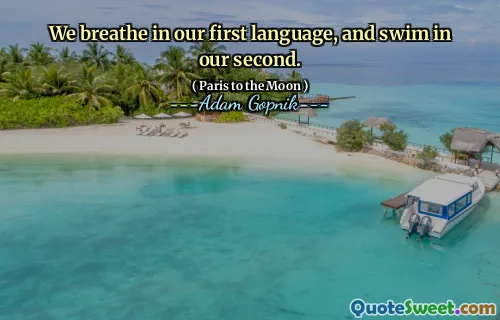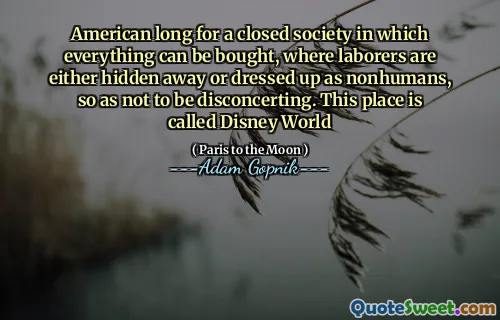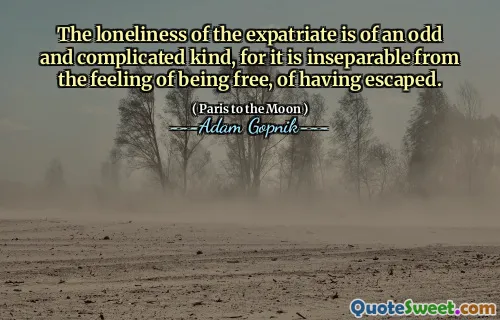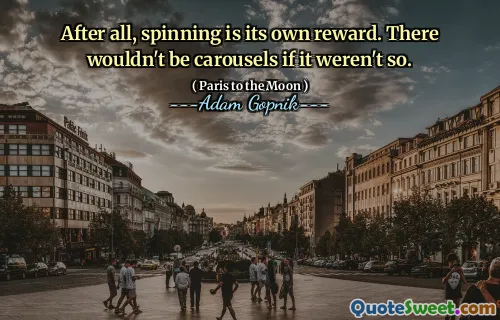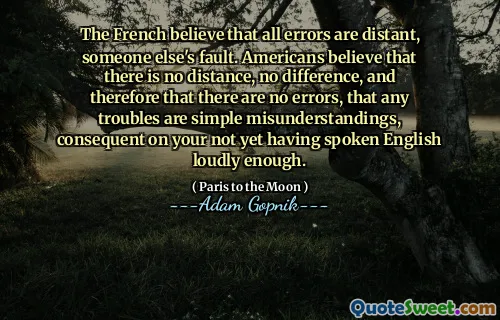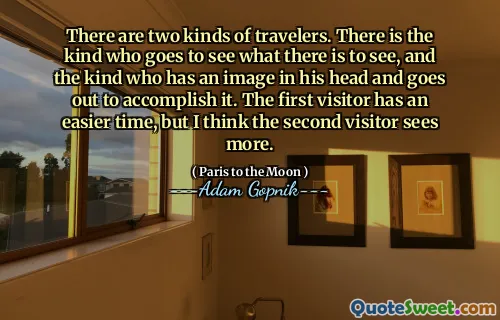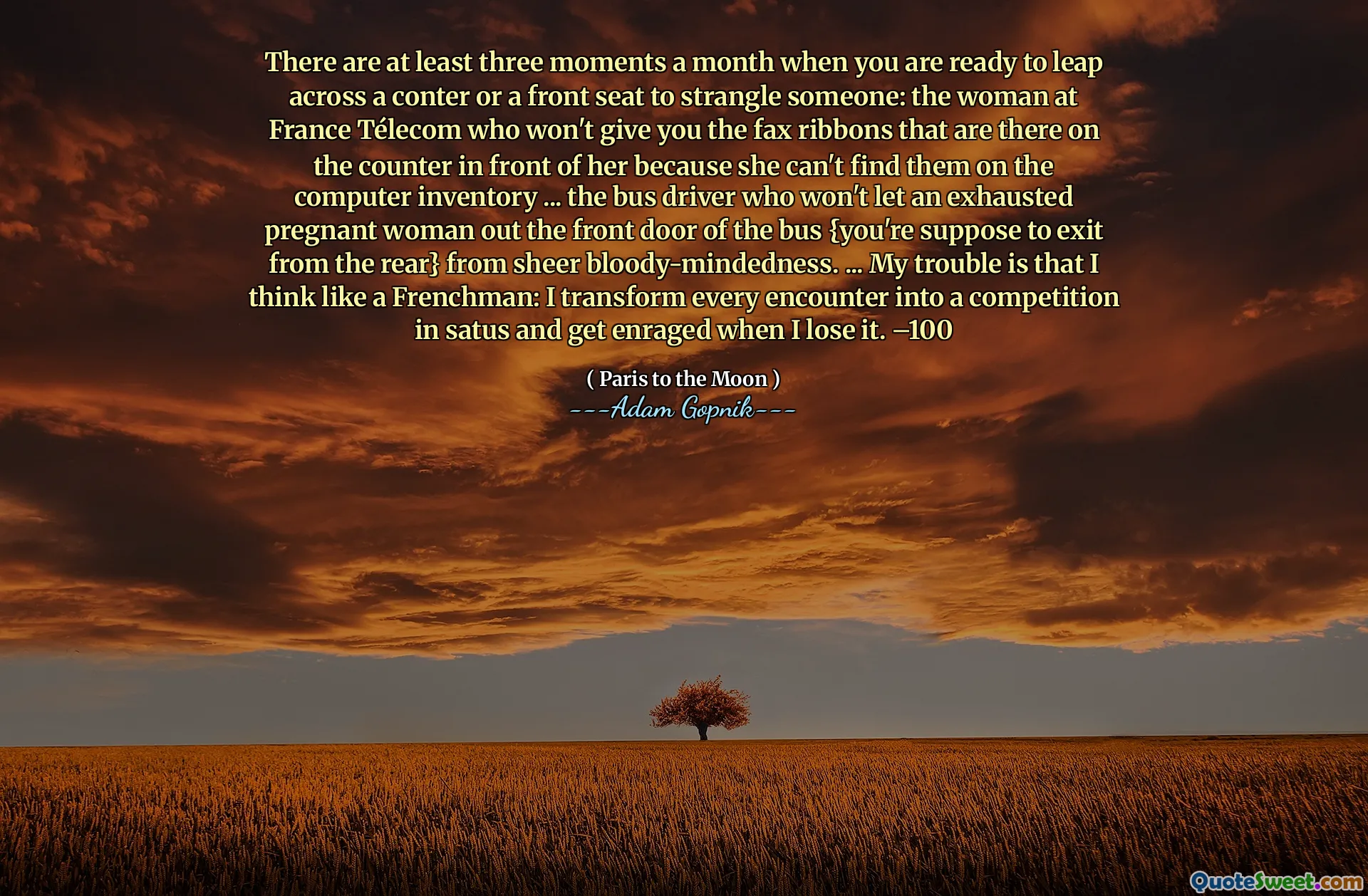
誰かを絞め殺すためにコンテントやフロントシートを飛び越える準備ができているとき、月に少なくとも3つの瞬間があります。彼女はコンピューターの在庫でそれらを見つけることができません...疲れた妊婦をバスの正面玄関から出さないバスの運転手(あなたは後部から出ると思われます}。 ...私の問題は、フランス人のように思うということです。私はすべての出会いをサタスの競争に変え、それを失うと激怒します。 –100
(There are at least three moments a month when you are ready to leap across a conter or a front seat to strangle someone: the woman at France Télecom who won't give you the fax ribbons that are there on the counter in front of her because she can't find them on the computer inventory ... the bus driver who won't let an exhausted pregnant woman out the front door of the bus {you're suppose to exit from the rear} from sheer bloody-mindedness. ... My trouble is that I think like a Frenchman: I transform every encounter into a competition in satus and get enraged when I lose it. –100)
Adam Gopnikの「Paris to the Moon」では、彼は日常の相互作用、特にパリでの頻繁な欲求不満を振り返ります。彼は、フランステレコムの役に立たない従業員や厳格なバスの運転手など、激しい迷惑を引き起こす瞬間について逸話を共有しています。これらのインスタンスは、ありふれた状況で無力だと感じる個人のより大きなテーマを強調し、攻撃性に屈することができる感情的な反応につながります。
Gopnikは、これらの経験が文化的な考え方によってどのように形成されるかについても掘り下げます。彼は、特に社会的地位の観点から、相互作用を競争力があると見なす傾向を説明しています。この視点は、より深い心理学的メカニズムを明らかにし、一見些細な瞬間が文化的規範と個人的価値に基づいて強い感情を呼び起こすことができることを示しています。
